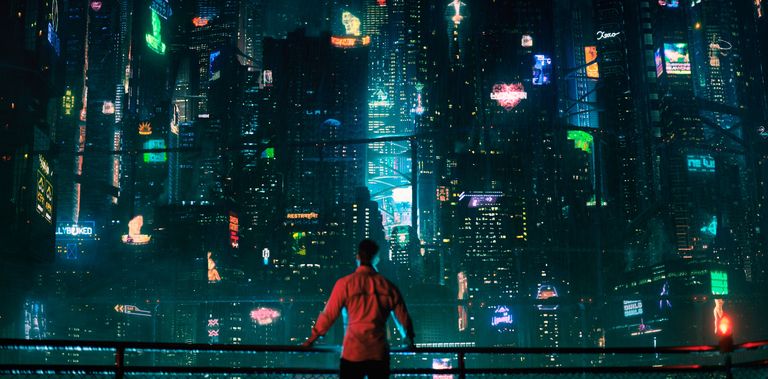Altered Carbon is now available on Netflix after two seasons.
The cyberpunk science fiction show, which in season two replaced Joel Kinnaman with Anthony Mackie from Marvel, has been consigned to television oblivion, along with many other shows on the streaming service.
Just a few days prior to this revelation making headlines, The Society and I Am Not Okay with This were also cancelled. Both got second seasons confirmed, but COVID was to blame, as per Netflix.
According to a source , the pandemic’s “unexpected budget increases,” “uncertainty” over air dates, and the challenges of managing large casts in the present environment heralded the end of the era.
Altered Carbon’s demise, however, is unrelated to coronavirus.
According to Deadline, the choice to cancel was taken in April.
Within a month of a show’s debut on the platform, Netflix often makes a decision on its renewal or cancellation. That offers the business enough time to examine the data and determine whether its subscriber base has shown any interest.
This year’s second season premiered on February 27, so that timeline would be consistent with the way the organisation typically operates. But holding off on informing fans till the end of August is certainly not the best move.
Altered Carbon’s cancellation was motivated by “the streamer’s usual audience vs cost renewal assessment procedure,” according to Deadline.
Netflix’s vice president of original programming Cindy Holland provided some insight into the company’s renewal strategy when she spoke at the Television Critics Association summer press tour in 2018.
Are we receiving enough viewers to cover the expense of the series? is the main factor that we consider, she said.
We also consider other factors, such as how well-liked the fan base is and how socially engaging a title is. There are other more factors that we consider as well.
At a conference in Israel the previous year, Holland echoed that statement, saying, “When we’re investing, we decide how much to invest based on the audience that will show up.
We consider the justification for continuing to invest in something that isn’t performing as well as we had intended if the audience doesn’t show up.
Critical acclaim is vital, too, she continued, but our main goal is to maximise the return on our investors’ capital because that money belongs to them, not to us.
It is well known that Altered Carbon, a programme that made extensive use of special effects and visual effects, cost a lot of money to produce.
It was previously reported that it cost $7 million every episode, a sum that has undoubtedly escalated over time as everything does. It had “a higher budget than the first three seasons of Game of Thrones,” according to Joel Kinnaman (via The Guardian).
Season one of the show may have had strong ratings (Netflix is notorious for keeping such information under wraps and only releasing it when it benefits the corporation), but it didn’t place among the top ten streaming services’ most watched shows of the year in 2018.
That would have been an expectation, not a wish, to support continuing investment in Altered Carbon, given the costs.
It should be remembered that Netflix’s entire business model is focused on attracting new customers every month, and the way to do so is to provide a steady stream of novel, in-demand films that spark conversation.
After losing fan favourites like Friends and The Office to competing platforms, Netflix is placing a greater emphasis than ever on its original content.
In light of the company’s “cost-plus” model, which stipulates that Netflix pays for the production costs and 30 percent or more of the overall expenditures, it is therefore time to say goodbye to the old and hello to the new.
According to a Wall Street prediction, the entertainment behemoth will invest more than $17 billion in content this year, but the cancellation of Altered Carbon demonstrates that the streaming service isn’t willing to give any series a pass if they don’t fulfil their goals.
The goal was to write five seasons, according to the book’s author Richard K. Morgan, who previously told The Guardian. Executive producer Alison Schapker spoke about the series’ “extensive” ambition in an interview with The Hollywood Reporter.
“[Creator] Laeta Kalogridis was already plotting out season two when I came on board,” she remarked. The plan was for this to be an anthology series while yet having considerable continuity and rewarding viewers as they followed Takeshi Kovacs’ adventure season after season.
It’s quite improbable that it will be picked up by another streaming service or broadcaster.
A condition in Netflix contracts, according to a 2019 claim from Deadline, bans its cancelled episodes from finding new homes “for a lengthy amount of time, thought to be two to three years.” This restriction would slow the momentum of any series by preventing terminated titles from finding new homes.
The enormous financial cost of undertaking this endeavour is another factor; while companies like Amazon and Apple could manage it, many others would not want to.
Despite all the online clamour from Altered Carbon fans, particularly on the cancellation of a programme with such a varied cast, it appears that Altered Carbon’s chances are overwhelmingly against it.






